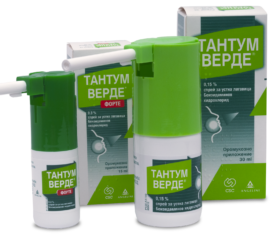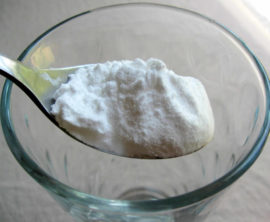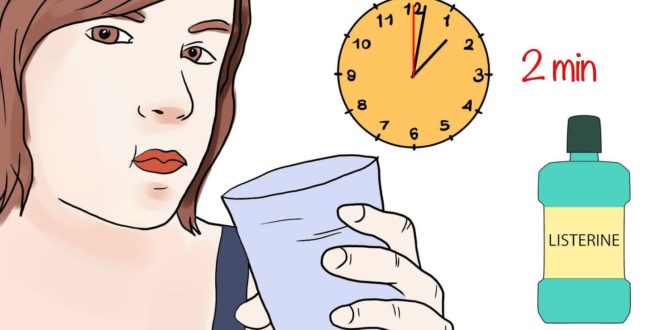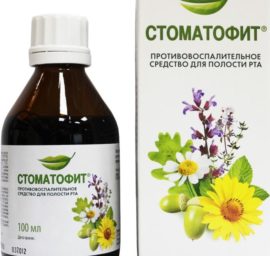What and how to rinse your mouth with gum disease - pharmacy and folk remedies
With gum inflammation, it is better to start rinsing your mouth with medications and herbal infusions in a timely manner, otherwise serious complications may arise - periodontitis, abscesses.
Content
Causes of inflammation
Before starting tooth treatment and rinsing the gums, it is necessary to establish what caused inflammation, since the removal of symptoms without eliminating the cause will be of a short-term nature. The standard causes of inflammatory processes include:
- food mucosal injury;
- improper installation of crowns, braces, prostheses and other dental systems;
- poor oral hygiene;
- the use of extremely hard toothbrushes;
- diabetes;
- lack of ascorbic and folic acids in the body;
- thyroid disease;
- tartar formation;
- heredity;
- periodontitis, caries and periodontal disease;
- general vitamin deficiency, exhaustion and decreased immunity;
- hormonal changes;
- taking certain medications (birth control, antidepressants, vasodilators);
- smoking;
- teething in children.
Inflamed gums are an active site of infection in the oral cavity, which runs the risk of causing septic damage to the entire body, so they should be treated.
Methods for relieving inflammation in dentistry
Local therapy is the most effective method of combating gingivitis at home. Most often, rinses are used, since they have a lot of advantages. Rinses allow you to:
- clear the mucosa of pathogenic microorganisms;
- whiten teeth;
- eliminate local inflammation;
- make your breath fresh;
- strengthen local immunity.
In addition to mouthwashes, for gum disease use:
- herbal and vegetable applications;
- irrigation with Miramistin and Furacilin;
- beeswax honey chewing gum;
- oral vegetable baths;
- ointments and gels (Parodontocide, Holisal, Denthol);
- essential oils for lubrication.
With advanced dental diseases, patients are shown antibiotic therapy, but drugs of a similar plan should be prescribed by a doctor.
Medicinal anti-inflammatory drugs
There are many antiseptics that can be used to relieve inflammation in the oral cavity. They destroy pathogens and restore periodontal tissue. The standard course of treatment with almost all drugs is 7-10 days, a single rinse will not give special results.
Furatsilin
This is a simple and affordable drug. To prepare the desired solution, crush 2 tablets of Furacilin and then combine the resulting powder with 200 milliliters of water. The number of rinses depends on the severity of the pathology - if the gums are very sore and sore, rinse them with Furacilin every hour.
Chlorhexidine
Chlorhexidine is a strong antimicrobial drug, but it is safe enough to be used during pregnancy. An aqueous solution of Chlorhexidine is rinsed with gums 3-4 times a day, approximately in the morning or evening hours, holding it in the mouth for at least a minute.
Miramistin
Miramistin's medicinal solution is an analog of Chlorhexidine. It helps a lot in cleansing the mouth. In addition to the standard anti-inflammatory effect, the drug has strong antibacterial, antiseptic and antimicrobial properties. For instance, Miramistin can destroy the viral particles of herpes.
Tantum Verde
 A unique antiseptic that is prescribed not only for gum disease, but also for throat infections:
A unique antiseptic that is prescribed not only for gum disease, but also for throat infections:
- laryngitis;
- tonsillitis;
- pharyngitis.
Tantum Verde contains non-steroidal anti-inflammatory substances. To prepare a treatment solution, it is necessary to mix the drug and water in a ratio of one to one, and then rinse the mouth with the resulting liquid 3-4 times a day.
Malavit
Homeopathic medicine with antimicrobial properties. He also effectively copes with possible swelling of the gums. To prepare the desired solution, drip 10 drops of the substance into a glass of warm water.
Stomatidine
The active substance of Stomatidin is hexetidine. This is a powerful drug that can not only cope with inflammation, but also destroy the fungus on its own. Rinse your mouth with Stomatidine 2 times a day for a week. The drug is contraindicated in pregnancy and lactation.
Stomatidine is toxic, so it is undesirable to swallow it. If this still happened, you need to take an absorbent - activated carbon or Enterosgel.
Chlorophyllipt
An effective anti-inflammatory medicine with eucalyptus leaf extract containing a large amount of chlorophyll. This substance has excellent regenerative and catalytic properties. To prepare a therapeutic solution, it is diluted with boiled chilled water.
Stomatophyte
This is a strong anti-inflammatory drug that has a plant-alcohol base. Kind of medication Stomatophyte Fresh does not contain alcohol, due to which they can rinse the mouth of pregnant women and drivers of vehicles. Active components of Stomatophyte:
To prepare the treatment solution, 4 tablespoons of the drug should be diluted in a glass of water. The course of treatment is 2 weeks. A side effect of rinsing with Stomatophyte is a darkening of the tooth enamel in the patient, which occurs after the cessation of procedures.
The use of classic Stomatophyte for longer than 15 days is prohibited, since the alcohol in its composition cures gingivitis, but it overdries the mucous membrane.
Hydrogen peroxide
Peroxide is used to detect compaction in the gums, severe inflammation and the appearance of purulent formations. If this substance does not help to cope with the infection, then antibiotics will be prescribed in the future.
It is required to dissolve a tablespoon of the medicine in a glass of water, and then rinse your mouth with the resulting product. After several applications, the sick purulent wounds will open and clean. Hydrogen peroxide is so effective that in a clinic, it is rinsed and washed with periodontal pockets to wash out pus and infection.
Whatever drug is chosen for rinsing the mouth with gum disease, it should be used after every meal, even a small snack. This procedure will not be worse, since it has practically no contraindications and helps to relieve pain without harm to the body.
Folk remedies
At home, the treatment of gingivitis and other infections of the oral cavity is possible without the use of pharmacy medicines, since a huge number of herbs and plant tinctures have the necessary antibacterial and antimicrobial properties.
Soda solution
 A solution of baking soda is the easiest way to rinse your mouth if the gum is inflamed. To prepare the drug, you need to dissolve a spoonful of ordinary baking soda in 250 milliliters of warm water, and then rinse your mouth with the mixture.
A solution of baking soda is the easiest way to rinse your mouth if the gum is inflamed. To prepare the drug, you need to dissolve a spoonful of ordinary baking soda in 250 milliliters of warm water, and then rinse your mouth with the mixture.
Soda washing perfectly removes puffiness, inflammation and redness. To enhance the antiseptic effect, salt is added to this solution.
Ginger
Ginger root, in addition to eliminating inflammation, helps:
- whiten teeth completely (even molars);
- strengthen the posterior part of the gums.
You should grind 15 grams of ginger root, pour it with 150 milliliters of water and let it brew.
Propolis tincture
This honey product is freely sold in pharmacies and specialized beekeeping stores. The composition has a good antiseptic effect. To create a means to rinse the mouth during inflammation, one spoonful of tincture is dissolved in a glass of water.
Essential oils
Homemade solutions of essential oils of black cumin, sea buckthorn or tea tree are good for periodontitis. They relieve pain, disinfect and rinse the mouth, eliminating bleeding and inflammation of the gums, subject to daily rinsing. If essential oils are not diluted, they can lubricate painful gums.
Herbal decoctions
In folk medicine, a wide variety of herbs have been used to treat gums. These plants include:
To prepare a healing solution, you need to pour a tablespoon of grass with a glass of water. After this, the mixture is slowly boiled for 5 minutes (irrelevant only for chamomile, since it will lose its healing properties from boiling). Then the resulting liquid is infused. And only after a few hours it can rinse your teeth, with severe inflammation of the gums, it is recommended to carry out the procedure at least 6 times a day.
Olive oil
This product is rich in vitamin E, necessary for tissue regeneration. You should take a tablespoon of olive oil (it does not need to be diluted) and rinse the gums with it for 5 minutes, carefully rolling the viscous liquid in the mouth. Then the oil should be spit out, because it contains a large number of pathogenic bacteria, which caused the gums to become inflamed. The procedure is carried out in the morning before brushing your teeth.
If there is no olive, you can take ordinary sunflower oil, but it will be less effective in fighting infection.
Alcohol horseradish tincture
You can cook alcohol tincture of horseradish yourself. To do this, finely rub the vegetable and pour vodka. The resulting mixture should be placed in a dark opaque jar and left for 20-25 days. Then the tincture can be diluted with water and rinsed with an oral cavity in case of gum disease.
Mummy
The classic Altai mummy helps to cope with inflammation in the oral cavity, and also has analgesic and regenerative properties. About 3 grams of the mummy needs to be dissolved in 100 milliliters of water, rinsing the gums with the resulting liquid should be done after eating.
Rinsing with gum disease is one of the most effective and justified methods of therapy, since it allows you to eliminate diseases of the oral cavity without serious side effects in the form of allergic reactions, nervous agitation, and complications of the organs of the excretory system.







